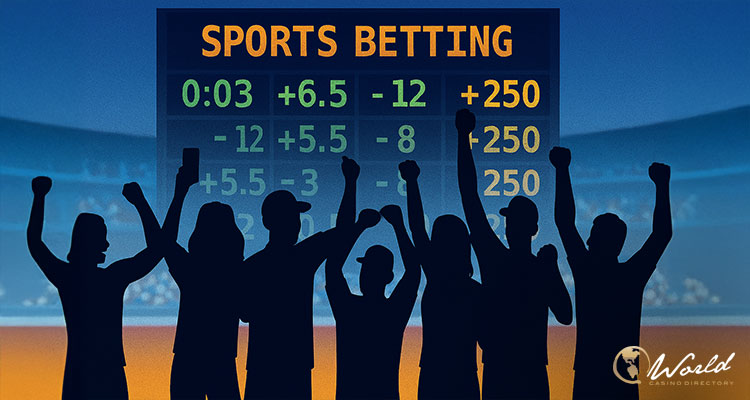The NCAA is on the brink of implementing a landmark change that would allow student-athletes and athletic department staff to participate in professional sports betting, marking a major shift in the organization’s long-standing gambling policies.
On Wednesday, the Division I Administrative Committee voted to adopt a proposal that would permit athletes and staff to place wagers on professional sports, a move that still requires endorsement from Divisions II and III before taking effect. If the remaining divisions give their approval later this month, the change will officially go into effect on November 1. The possibility of such a move was first announced in May, when it was reported that the organization was considering a change in its stance on sports betting.
Broader Rule Change Still Under Review
While the rule would open the door to professional sports wagering, the NCAA emphasized that restrictions on betting related to college athletics will remain firmly in place. Student-athletes and staff members will still be prohibited from gambling on college competitions or sharing insider information about those events. Advertising or sponsorships tied to sports betting will also continue to be banned during NCAA championships.
Josh Whitman, the University of Illinois Athletics Director and chair of the Division I Administrative Committee, underscored the committee’s caution while announcing the decision. “The Administrative Committee was clear in its discussion today that it remains concerned about the risks associated with all forms of sports gambling but ultimately voted to reduce restrictions on student-athletes in this area to better align with their campus peers,” Whitman said according to an official NCAA press release. “This change allows the NCAA, the conferences and the member schools to focus on protecting the integrity of college games while, at the same time, encouraging healthy habits for student-athletes who choose to engage in betting activities on professional sports.”
Whitman added that the current bylaws were originally crafted when sports betting was largely illegal across the United States, making this update a response to a rapidly evolving legal and cultural landscape. The proposal first surfaced in discussions with the Division I Board of Directors back in May 2025.
Student-Athlete Advisory Committee Backs the Proposal
Support for the proposal has also come from the Division I Student-Athlete Advisory Committee (SAAC), which includes representatives from each Division I conference. The committee issued a statement applauding the measure as a step toward transparency and education. “We believe this change represents meaningful progress toward a culture that prioritizes education, transparency and support over punishment,” the SAAC stated. “By removing unnecessary barriers, we are hopeful that student-athletes and athletics administrators will feel empowered to come forward, seek help and engage in open dialogue without fear.”
The SAAC also encouraged the NCAA to accompany this policy shift with expanded education programs and mental health resources to help prevent gambling-related issues among student-athletes.
NCAA’s Education and Enforcement Efforts
In recent years, the NCAA has significantly expanded its educational outreach regarding sports betting. Over 100,000 student-athletes, coaches, and administrators have taken part in programs run in collaboration with EPIC Global Solutions. Additionally, an NCAA-developed e-learning module on responsible gambling and integrity risks has already reached more than 50,000 student-athletes worldwide.
Dr. Deena Casiero, the NCAA’s chief medical officer, noted that “abstinence-only approaches to social challenges for college-aged individuals are often not as successful as approaches that focus on education about risks and open dialogue.” Casiero emphasized that this shift reflects a harm-reduction approach — giving student-athletes tools to make informed decisions and seek support without jeopardizing their eligibility.
Betting-Related Infractions Drive Urgency
The NCAA’s evolving stance on professional sports betting comes amid an increase in gambling-related infractions within college athletics. In September, the NCAA permanently banned three former Fresno State basketball players for manipulating their performances to win bets. The organization is also investigating 13 former men’s basketball players across six institutions for alleged violations that include wagering on or against their own teams and sharing confidential information.
Jon Duncan, the NCAA’s vice president of enforcement, reaffirmed the organization’s commitment to safeguarding integrity: “The enforcement staff continues to investigate and resolve cases involving sports betting quickly but thoroughly. Enforcement staff are investigating a significant number of cases that are specifically relevant to the NCAA’s mission of fair competition, and our focus will remain on those cases and those behaviors that impact the integrity of college sports most directly.”



